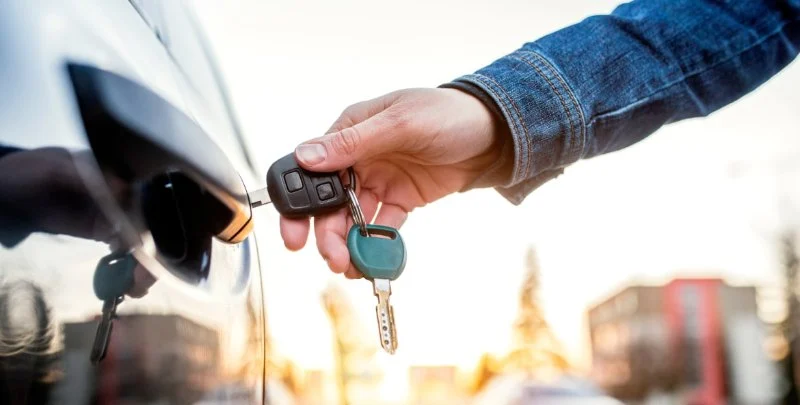
- Understanding-Car-Lock-Tampering-Techniques
- 1 - Common-Methods-Used-by-Thieves
- 2 - How-to-Detect-Signs-of-Tampering
- 3 - Effective-Ways-to-Protect-Your-Car
- 4 - Real-Life-Cases-and-Lessons-Learned
- 5 - Expert-Tips-from-Locksmiths
- 6 - Get-Help-from-Locksmith-Finder
How to Protect Your Car From Lock Tampering Techniques
Car theft in the United States continues to evolve, with criminals using more sophisticated methods to bypass security systems. Understanding how lock tampering works is the first step toward keeping your vehicle safe. Whether it’s a quick attempt using a lock-picking tool or a more advanced electronic interference method, knowing how to prevent it can save you from frustration, financial loss, and emotional distress. In this article, we’ll explore how thieves manipulate locks, the warning signs to watch for, and practical ways to secure your car effectively.
1 - Common Methods Used by Thieves
Modern car thieves employ a variety of techniques to gain access to vehicles. One of the most common is lock picking, where specialized tools mimic the shape of a car key to manipulate the tumblers inside the lock cylinder. Another rising threat is signal relay attacks, often used against cars with keyless entry systems. In this case, thieves use electronic devices to capture the signal from your key fob, tricking the car into thinking the key is nearby.
Additionally, some criminals rely on impressioning — creating a copy of your key using an imprint — or brute-force tactics like prying the door lock open with a screwdriver. While older models are particularly vulnerable to physical tampering, even newer vehicles with advanced locks can be targeted through technology-driven attacks. Recognizing these methods helps car owners take appropriate preventive actions.
2 - How to Detect Signs of Tampering
Early detection of lock tampering can prevent a full-blown theft. Look for subtle but telltale signs such as small scratches near the keyhole, bent metal around the door handle, or resistance when turning the key. These could indicate that someone has tried to manipulate your lock.
Modern thieves may also use electronic hacking tools that leave minimal physical evidence. If your car’s alarm system goes off unexpectedly or the doors unlock without your command, it’s crucial to have your vehicle inspected immediately. Some drivers have even noticed their car alarm logs showing “false” triggers—an early warning of attempted access.
3 - Effective Ways to Protect Your Car
Protection starts with prevention. Always park in well-lit areas or in places monitored by security cameras. Installing a steering wheel lock or pedal clamp adds a visible deterrent, discouraging thieves who prefer quick, low-risk targets. Consider upgrading to smart locks that feature encrypted communication to prevent signal relay attacks.
In addition, window etching your Vehicle Identification Number (VIN) can make your car less attractive to criminals, as it’s harder to sell stolen parts from traceable vehicles. Regularly updating your car’s software and keeping your key fob inside a signal-blocking pouch are also excellent preventive measures.
Most importantly, if you ever experience an attempted break-in, consult a professional locksmith immediately. A certified locksmith can replace compromised locks and suggest anti-theft systems tailored to your vehicle’s make and model.
4 - Real-Life Cases and Lessons Learned
In a recent case in Los Angeles, a series of vehicle thefts involved criminals using handheld signal amplifiers to clone key fob frequencies from parked cars. Victims reported that their vehicles were unlocked and started without any visible damage. This incident led to a local awareness campaign emphasizing the use of Faraday pouches — protective bags that block electronic signals.
Another example comes from Chicago, where drivers of older Honda and Toyota models found their locks jammed with foreign objects. These attempts failed when owners had previously upgraded to tamper-resistant lock cylinders. These stories highlight how proactive measures can turn potential theft into a failed attempt.
5 - Expert Tips from Locksmiths
Professional locksmiths stress the importance of combining mechanical and electronic defenses. For instance, pairing a deadlock system with a motion-triggered alarm increases the level of protection significantly. Locksmith experts also recommend scheduling an annual security inspection, as many car owners overlook early wear or internal damage in locks that could make them easier to pick.
Another expert insight: never rely solely on factory security systems. While modern vehicles come with immobilizers, experienced thieves can still bypass them using reprogramming devices. Instead, invest in secondary locking systems or tracking devices. It’s a small price to pay for peace of mind.
6 - Get Help from Locksmith Finder
If you’re unsure how to protect your vehicle or need professional advice after a lock tampering attempt, visit Locksmith Finder. This trusted platform helps users across the United States find certified locksmiths, anti-theft devices, and car security services tailored to their needs. Whether you drive a compact car or a luxury model, you can discover reliable local experts who specialize in preventing lock tampering and enhancing vehicle safety.
Your car is one of your most valuable assets — don’t wait until it’s too late. Stay informed, stay cautious, and take action today to protect your car from evolving theft techniques.

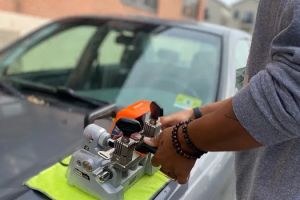

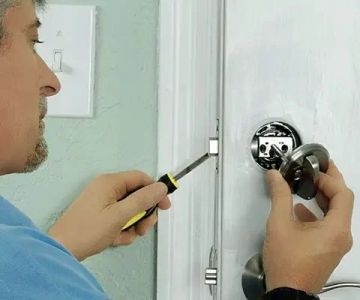

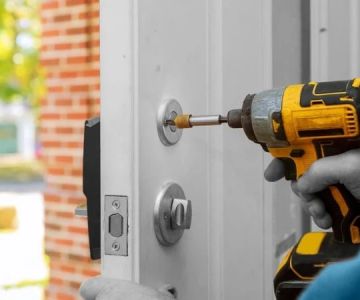

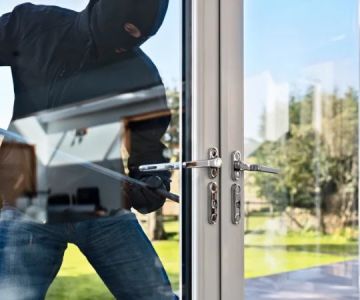

 KeyMe Locksmiths4.0 (2 reviews)
KeyMe Locksmiths4.0 (2 reviews)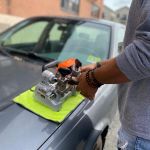 KeyMe Locksmiths4.0 (17 reviews)
KeyMe Locksmiths4.0 (17 reviews) KeyMe Locksmiths2.0 (14 reviews)
KeyMe Locksmiths2.0 (14 reviews) KeyMe Locksmiths4.0 (11 reviews)
KeyMe Locksmiths4.0 (11 reviews) KeyMe Locksmiths5.0 (1 reviews)
KeyMe Locksmiths5.0 (1 reviews) Bills Fixit Shop4.0 (225 reviews)
Bills Fixit Shop4.0 (225 reviews)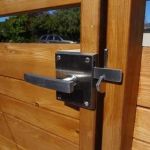 How to Secure Your Fence Gate: Locksmith Solutions for Maximum Protection
How to Secure Your Fence Gate: Locksmith Solutions for Maximum Protection How to Secure Your Fence Gate: Locksmith Solutions
How to Secure Your Fence Gate: Locksmith Solutions How to Secure Sliding Glass Doors With Smart Locks and Deadbolts
How to Secure Sliding Glass Doors With Smart Locks and Deadbolts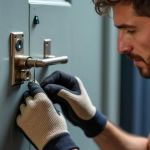 How to Protect Your Business With Master Key Systems: A Comprehensive Guide
How to Protect Your Business With Master Key Systems: A Comprehensive Guide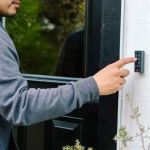 The Importance of Installing a Keypad Lock in Your Home
The Importance of Installing a Keypad Lock in Your Home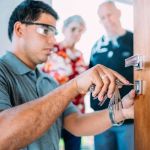 The Importance of Installing a Security Screen Door in Your Home | Locksmith Finder
The Importance of Installing a Security Screen Door in Your Home | Locksmith Finder